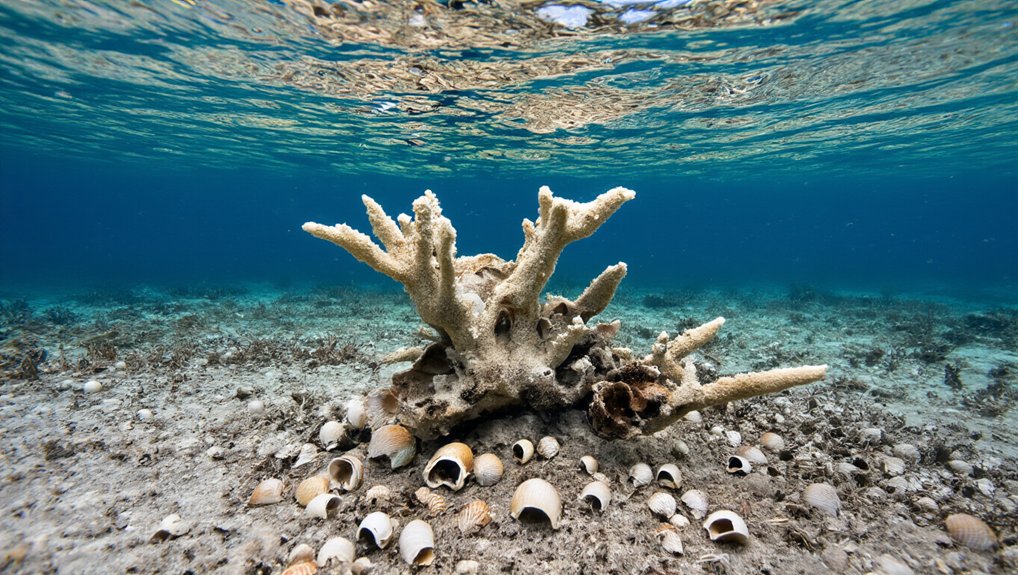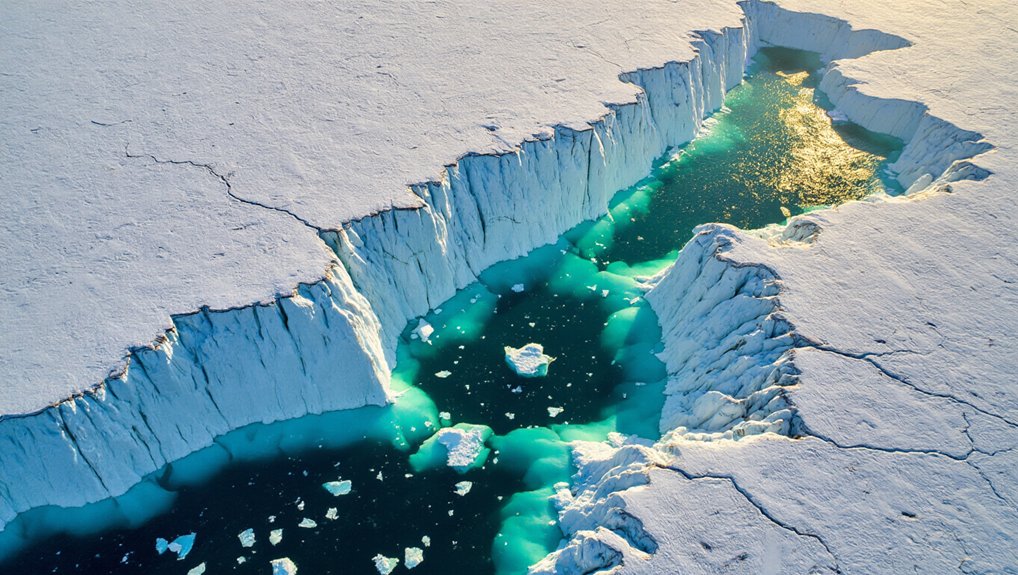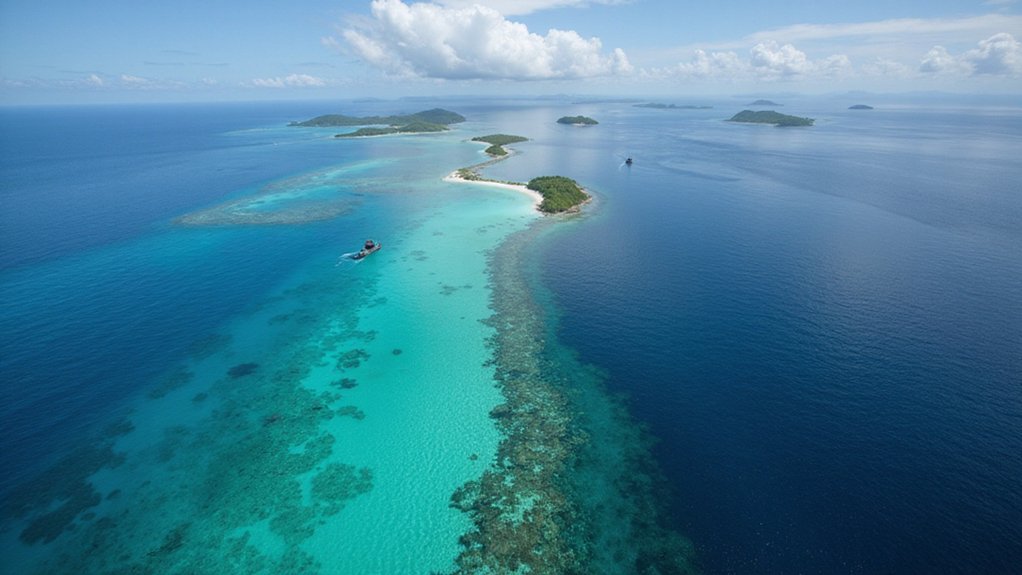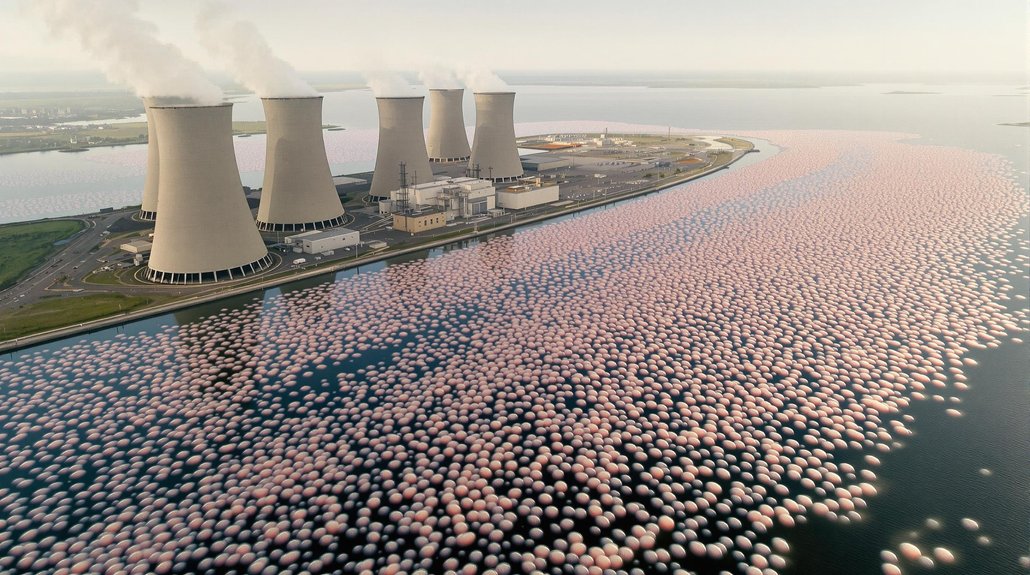Ocean acidity has spiked 26% since the 1700s, the worst levels in 2 million years. Marine creatures can’t build shells fast enough—they’re literally dissolving. Tropical reefs lost 40% of habitats, polar sea butterflies dropped 60%. Coastal shellfish habitats? Down 13%. The UN’s scrambling for solutions while scientists monitor the damage. Food webs are collapsing as acid-sensitive organisms vanish. The full scope of this catastrophe runs deeper than most realize.
While humans argue about climate change, the ocean is quietly turning into acid. The numbers don’t lie. Ocean acidity has jumped 25% since the 1700s, the worst it’s been in 2 million years. The pH dropped from 8.2 over 250 years. That’s a 26% spike in acidity, for those keeping score.
Scientists got this one wrong. They thought we had more time before crossing planetary boundaries. Turns out, we already blew past them. Ocean acidification joined six other planetary boundaries already crossed, each one threatening human survival. The subsurface waters in polar regions and West Coast upwelling zones? They’re getting hammered. A recent study showed previous estimates were too optimistic. Shocking, really.
Here’s how it works. Marine creatures need calcium and carbonate from seawater to build their shells and skeletons. More acid means slower growth. Get acidic enough, and these structures dissolve faster than they form. It’s a double whammy – less carbonate available, more acidic water. The ocean’s changing so fast, marine life can’t adapt or swim away in time.
The damage report reads like a horror story. Tropical reefs lost over 40% of their habitats. Sea butterflies in polar regions? Down 60%. Coastal shellfish lost 13% of functional habitat. The most productive ocean areas – polar regions and upwelling zones – are taking the biggest hits. At this rate, marine ecosystems face irreversible damage.
Food webs are unraveling. Sea butterflies, tiny but essential, are getting decimated. Lab studies show when acid-sensitive organisms suffer, everything that eats them suffers too. Ripple effects spread through entire ecosystems. Shellfish and other calcifying organisms form the foundation of marine food chains. Knock them out, and the whole system collapses.
Add climate change to acidification, and you’ve got compounding stressors crushing marine life. NOAA oceanographer Richard Feely co-authored research exposing the true extent of this mess. Scientists are scrambling to document changes, hoping evidence might spur policy action. Research institutes are establishing experimental facilities dedicated to studying acidification impacts on marine organisms.
The UN Ocean Conference in France gathered top researchers and policymakers to tackle the crisis. New scientific positions focus specifically on acidification impacts. They’re monitoring subsurface waters continuously now.
Too little, too late? Time will tell.
References
- https://insideclimatenews.org/news/09062025/ocean-acidification-crosses-planetary-boundaries/
- https://oceanacidification.noaa.gov/2025-ocean-acidification-day-or-action/
- https://www.epa.gov/ocean-acidification/effects-ocean-and-coastal-acidification-ecosystems
- https://news-oceanacidification-icc.org/2025/01/24/scientist-ocean-acidification-and-climate-change-impact-on-marine-ecosystems/
- https://www.epa.gov/ocean-acidification/effects-ocean-and-coastal-acidification-marine-life







